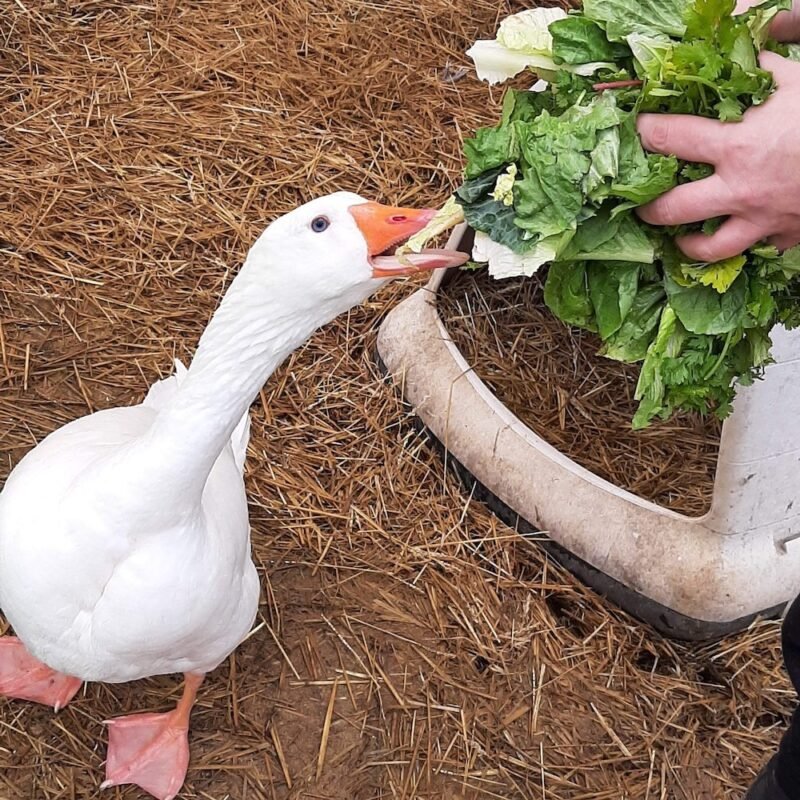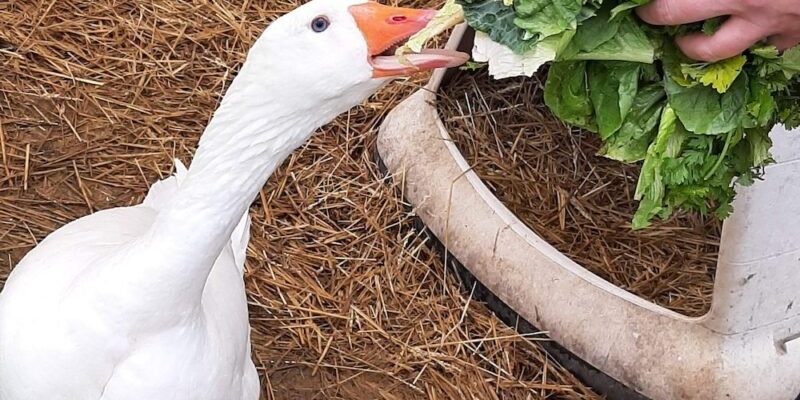
Feeding laying geese isn’t just about throwing some grain on the ground. It’s a bit more complex, balancing different nutrients to ensure they remain healthy and productive. You have to consider protein levels, vitamins, and minerals that all contribute to egg production. In this guide, we’ll discuss the best feed options and essential supplements to keep your laying geese at their best. We’ll also touch on specific brands and types that many experienced goose farmers swear by, making it easy for you to choose the right path for your feathered friends.
Understanding the Nutritional Needs of Laying Geese
To start off, it’s crucial to understand what lays the foundation for a goose’s diet. Geese are generally herbivores, but their nutritional requirements change when they begin laying eggs. They need more protein and specific nutrients to support egg production. Here’s how you can break it down:
– Protein: Laying geese require around 16-18% protein in their diet. This protein helps in the development of healthy eggs and keeps your geese strong and energetic.
– Carbohydrates: While geese need protein, they also require carbohydrates for energy. Grains like corn and barley can provide that essential energy boost.
– Vitamins and Minerals: Calcium is vital for shell development. Without it, your geese could lay eggs with weak or soft shells. Additionally, phosphorus, vitamin D, and other trace minerals are essential for overall health.
Incorporating these elements into their daily feed is like preparing a well-balanced meal for yourself. You wouldn’t want just protein or fiber; you’d want a mix that keeps you energized and healthy.
Best Feed Options for Laying Geese
Now, let’s dive into the types of feed that are best suited for laying geese. Many farmers swear by specific brands or formulations, and for good reason. Here are some top choices you might consider:
- Layer Pellets: These are specially formulated to meet the needs of laying geese. They usually contain the right amount of protein and calcium you need. Brands like Purina and DuMor have pellets designed for this purpose.
- Whole Grains: Mixing whole grains, like corn or wheat, with the layer pellets can provide additional energy and enjoyment. Geese love to forage, and grains allow them to do just that.
- Commercial Laying Crumbles: Another great option is crumbles that are easy to eat. They often come fortified with essential vitamins and minerals and provide a balanced diet for your geese.
Choosing a good quality feed is like finding the right fuel for a car. You want something that makes them run efficiently and keeps them healthy.
Incorporating Supplements for Optimal Health
While quality feed is crucial, adding supplements can give your laying geese an extra boost. Think of supplements as those specialized vitamins we take for better health. They can help fill in any nutritional gaps and promote stronger eggs. Here’s what to consider:
– Calcium Supplements: Calcium carbonate or bone meal is excellent for strengthening eggshells. Adding calcium directly to their diet, especially during peak laying seasons, can be a game-changer.
– Vitamin D Supplements: This is crucial, especially for geese that may not get enough sunlight. Vitamin D aids in calcium absorption and helps in overall bone health.
– Probiotics: These can promote a healthy gut, improving digestion and boosting immune function. Look for probiotic powders that you can mix into their feed for added benefits.
Supplementing their feed isn’t just about boosting egg production. It’s about keeping them healthy and happy.
Feeding Schedule and Daily Routine
Creating a structured feeding schedule can greatly benefit your geese. Like children, geese thrive on routine. Here’s a simple daily feeding routine you can follow:
– Morning: Start with a serving of high-quality layer pellets. This gives them the nutrition they need to kick off the day.
– Midday Snack: Toss in some whole grains or treats like fresh veggies. Geese enjoy browsing and foraging, which can keep them entertained and active.
– Evening: Provide a smaller portion of pellets again, allowing them to fill up before roosting for the night.
Establishing a routine not only helps in their digestion but also allows you to monitor their eating habits. If something seems off, you’ll notice right away.
Signs of Nutritional Deficiencies to Watch For
Sometimes, despite our best efforts, things don’t go as planned. Knowing the signs of nutritional deficiencies in laying geese can help you catch problems early. Here are a few red flags:
– Poor Egg Quality: Soft or thin-shelled eggs can indicate a calcium deficiency. If your geese are laying eggs that look weaker than usual, it’s time to reassess their diet.
– Low Egg Production: If your geese are laying fewer eggs, it might be due to a lack of protein or overall nutrients.
– Behavior Changes: Lethargy or unusual behavior can hint at malnutrition. Healthy geese should be active, curious, and social.
Taking these signs seriously can help you maintain their health and productivity.
Comparing Commercial Feed Brands
When it comes to choosing the best feeds and supplements for your geese, you may find yourself overwhelmed by the options available. Comparing popular brands can help you make an informed decision. Here are a few trusted brands and what they offer:
| Brand | Type of Feed | Key Features |
|---|---|---|
| Purina | Layer Pellets | High protein content, fortified with vitamins and minerals. |
| DuMor | Layer Crumbles | Specially formulated for laying geese, easy to digest. |
| Nutrena | Whole Grain Mix | Includes whole grains for energy, perfect for foraging. |
Each brand has its strengths, and what works for one farmer might not be the best for another. It’s all about finding the right balance for your specific flock.
In conclusion, caring for laying geese goes beyond just providing feed. It’s about understanding their nutritional needs and ensuring they receive a balanced diet that includes quality feed and essential supplements. By being mindful of their diet, establishing a feeding routine, and watching for signs of nutritional deficiencies, you can set your geese up for success.
Remember, keeping your geese healthy isn’t just about the eggs they produce; it’s also about their overall well-being and happiness. With the right approach, you can enjoy the rewarding experience of raising laying geese, providing both food for your family and companionship for yourself. Happy farming!

